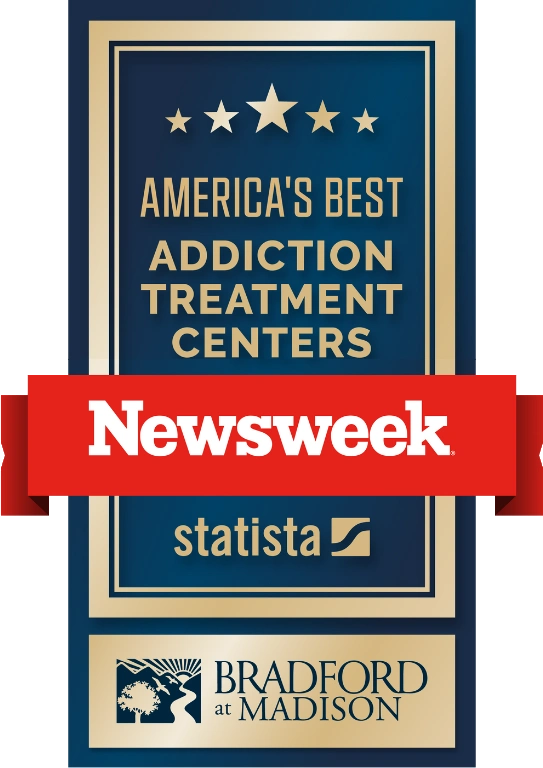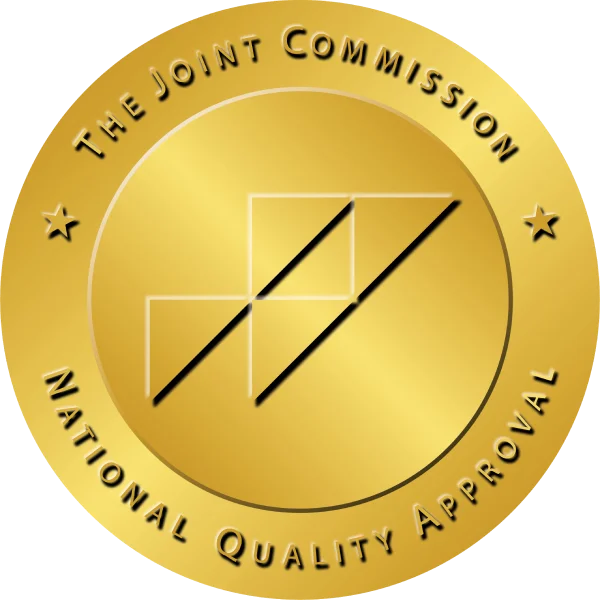How to Stay Sober During the Holidays: Your Complete Recovery Guide

Tips for Navigating Family Gatherings, Holiday Parties, and Seasonal Stress While Staying Strong in Recovery
The holiday season is often painted as a time of joy, connection, and celebration. But for those of us in addiction recovery, it can feel like navigating a minefield of triggers. The pressure to be happy, combined with family stress and parties centered around alcohol, can make staying sober during the holidays feel overwhelming.
At Bradford at Madison, we understand these challenges intimately. We know that protecting your recovery is the most important thing, and we’re here to help you do it. This guide is designed to give you practical, real-world strategies for staying sober and thriving during this season.
Why Are the Holidays So Challenging for Addiction Recovery?
If you feel a sense of dread as the holidays approach, you are not alone. This season can stir up a powerful mix of emotions that threaten your sobriety. You might feel nostalgic for past holidays, even those that were unhealthy, or overwhelmed by the pressure to create a “perfect” experience.
Holidays and recovery don’t always mix easily. Family gatherings often include alcohol, old conflicts can resurface, and the stress of the season can be intense. For many people, these feelings become major triggers that put their recovery at risk.
At Bradford at Madison, our approach to addiction treatment in North Alabama focuses on helping you identify and manage these exact triggers. We believe that understanding why you feel a certain way is the first step toward developing healthy coping skills. Instead of ignoring these difficult emotions, we encourage you to face them with support.
How Can You Stay Sober During Family Gatherings and Holiday Parties?
Family gatherings and holiday parties are often at the heart of the season, but they can also be the biggest source of stress. Old family conflicts can resurface, and you may find yourself in situations where alcohol is everywhere. It’s okay to protect your sobriety, even if it means disappointing others.
Staying sober during the holidays means learning to set boundaries. You don’t have to attend every party or family event, especially if you know it will be a high-risk environment. Your recovery comes first, and the team at Bradford at Madison can help you navigate these difficult decisions.
It’s Okay to Say No
One of the most empowering things you can do is give yourself permission to decline invitations. You do not have to attend every party or family event. Your recovery during the holidays is more important than any social obligation.
If you decide to go, have a plan. Practice saying “no, thank you” in the mirror before the event. Having a non-alcoholic drink in your hand can also prevent people from offering you alcohol. These simple strategies can make a huge difference.
Have an Exit Strategy
Before you arrive at an event, know how you will leave. Drive yourself so you are not dependent on others for a ride home. Decide on a specific time you will leave and stick to it.
If you start to feel overwhelmed or triggered, it is a sign of strength, not weakness, to leave early. The team at Bradford at Madison can even help you role-play these scenarios so you feel more confident. Remember, protecting your sobriety is always the right choice.
What Are The Early Signs of Relapse During the Holidays?
Relapse doesn’t just happen overnight. It’s a process that often begins with subtle shifts in your thoughts and behaviors. Recognizing these early warning signs is critical for staying sober and preventing a return to substance use.
Be honest with yourself if you notice any of the following: Are you pulling away from your support system, like your sponsor or support groups? Are you feeling more irritable, anxious, or resentful than usual? Are you starting to think that “just one drink” wouldn’t hurt or remembering your past use in a positive light.
If you recognize these signs in yourself, it’s time to reach out for help immediately. Don’t wait for a crisis. The friendly admissions team at Bradford at Madison is always available for anyone needing support, whether you are a current patient or part of our alumni community.
How to Remain Sober: Practical Strategies for the Holiday Season
Beyond managing social events, there are many proactive steps you can take to strengthen your holidays in recovery. Here are some strategies our clients at Bradford at Madison have found helpful for staying sober during this challenging time.
Create New, Sober Traditions
If your old holiday traditions were centered around substance use, it’s time to create new ones. Organize a sober holidays gathering with friends in recovery. Plan a winter hike, a movie marathon, or a game night with people who support your sobriety.
Volunteering your time at a local charity can be an incredibly rewarding way to shift your focus from your own struggles to helping others. These new traditions can become a beautiful and meaningful part of your recovery journey. At Bradford at Madison, we encourage our clients to build a life they love in sobriety.
Stick to Your Routine
The holidays can throw your schedule into chaos, but maintaining a routine is essential for stability and staying sober. Continue to attend your support meetings, whether in person or online. If you are traveling, look up meetings in the area you’ll be visiting.
Prioritize your therapy appointments and stay connected with your sponsor. At Bradford at Madison, we offer flexible outpatient programs in North Alabama that can help you stay on track during this busy season. Consistency is key to holiday recovery.
Prioritize Self-Care
Self-care is not selfish; it’s a vital part of addiction and holidays management. Make sure you are getting enough sleep, eating nutritious meals, and moving your body every day. Schedule “me time” to do things you enjoy, whether it’s reading a book, taking a bath, or practicing mindfulness and meditation.
These simple acts can make a huge difference in managing holiday stress. When you take care of yourself, you’re better equipped to handle triggers and stay committed to staying sober during the holidays. The compassionate team at Bradford at Madison can help you develop a personalized self-care plan.
How Do You Handle Loneliness and Isolation During the Holidays?
The holidays can be a lonely time, especially if you’re separated from loved ones or if you’ve distanced yourself from people who don’t support your recovery. Loneliness is a powerful trigger, and it’s important to address it head-on. Reach out to your support network, attend extra meetings, or connect with others in recovery online.
At Bradford at Madison, we understand that holidays in recovery can bring up feelings of isolation. That’s why we encourage our clients to stay connected to their community. You don’t have to go through this alone.
What Should You Do If You Feel Triggered?
If you feel triggered during the holidays, don’t ignore it. Acknowledge the feeling and reach out for help immediately. Call your sponsor, text a friend in recovery, or contact the Bradford at Madison helpline at 256-548-9389.
Having a crisis plan in place before the holidays begin is essential. Write down the phone numbers of people you can call and keep them easily accessible. Remember, asking for help is a sign of strength, not weakness.
Your Holiday Recovery Story Starts Here at Bradford at Madison
The holiday season doesn’t have to be a time of fear and anxiety. With the right support and a solid plan, you can navigate the challenges and find genuine joy in your sobriety. Remember that every day you stay committed to staying sober is a victory worth celebrating.
If you or a loved one is struggling with addiction and holidays stress this season, please know that you are not alone. The compassionate team at Bradford at Madison is here to help. Our addiction treatment programs in Madison, Alabama, provide a safe and supportive environment where you can build the foundation for a lifetime of recovery.
Your recovery is the greatest gift you can give yourself and your family. Don’t wait to start your new chapter. Call our confidential helpline at 256-548-9389 right now to take the first step today. We’re here to listen 24/7 and help you achieve lasting sobriety. Call Bradford at Madison now; your future is waiting.



